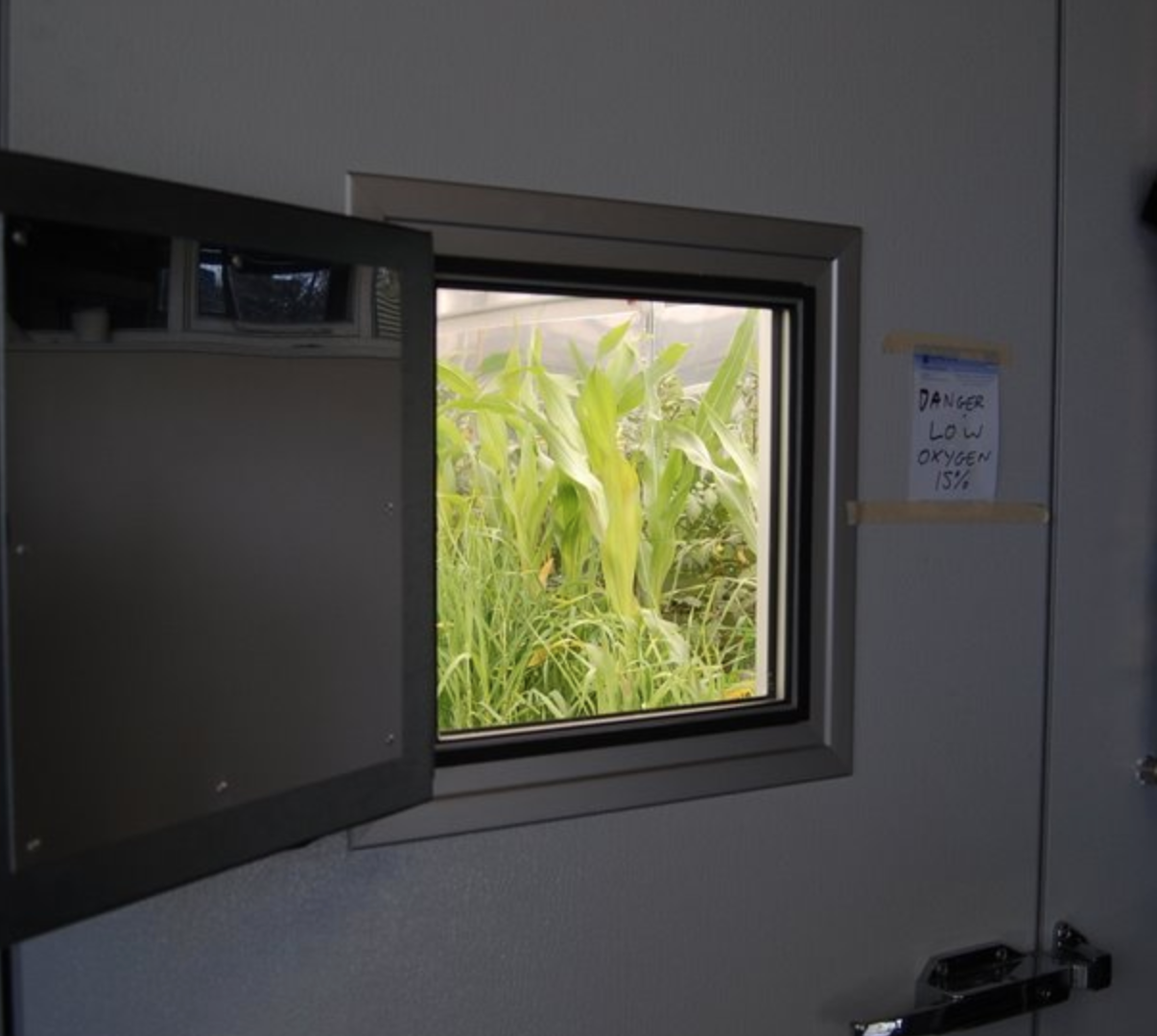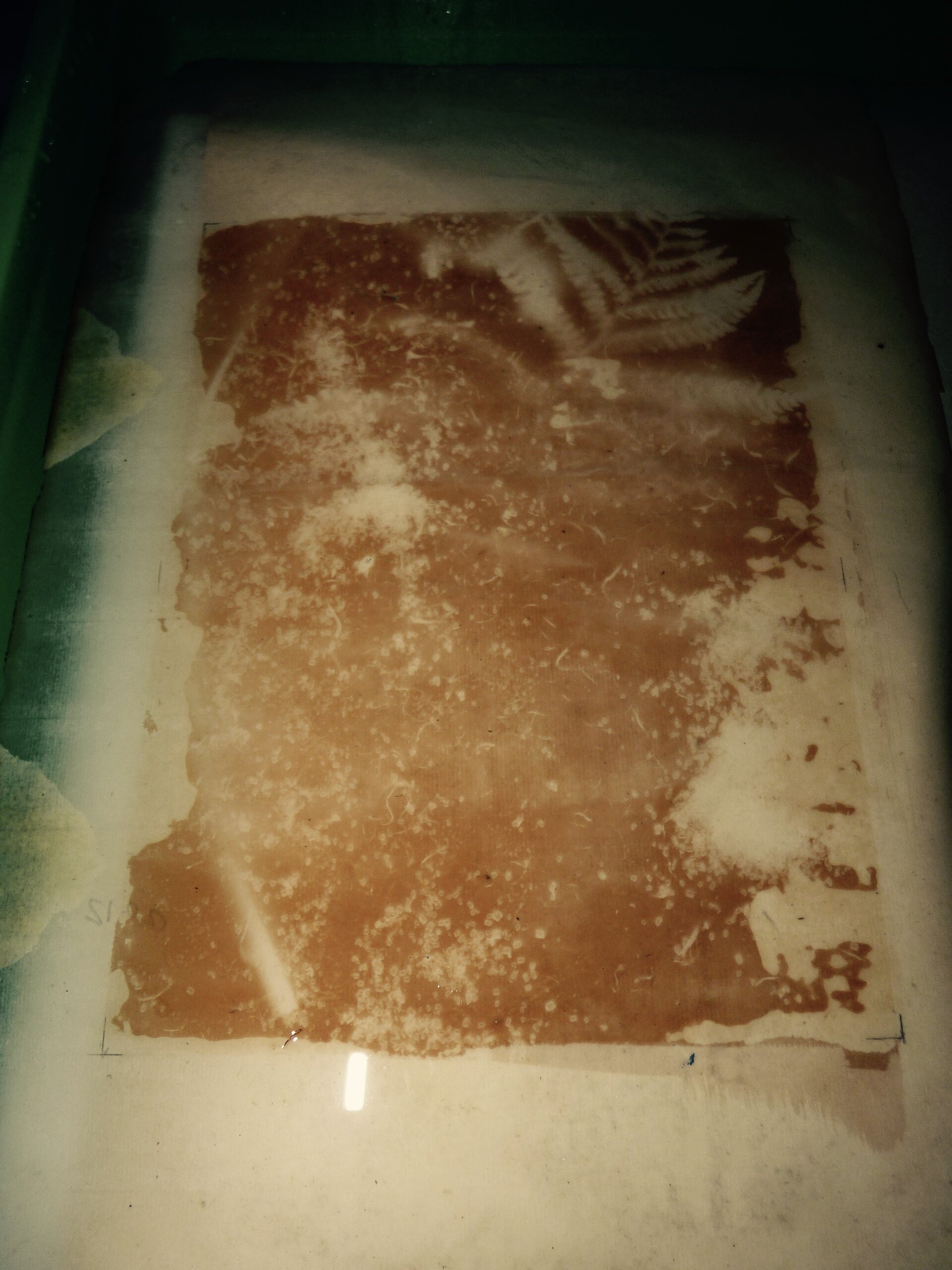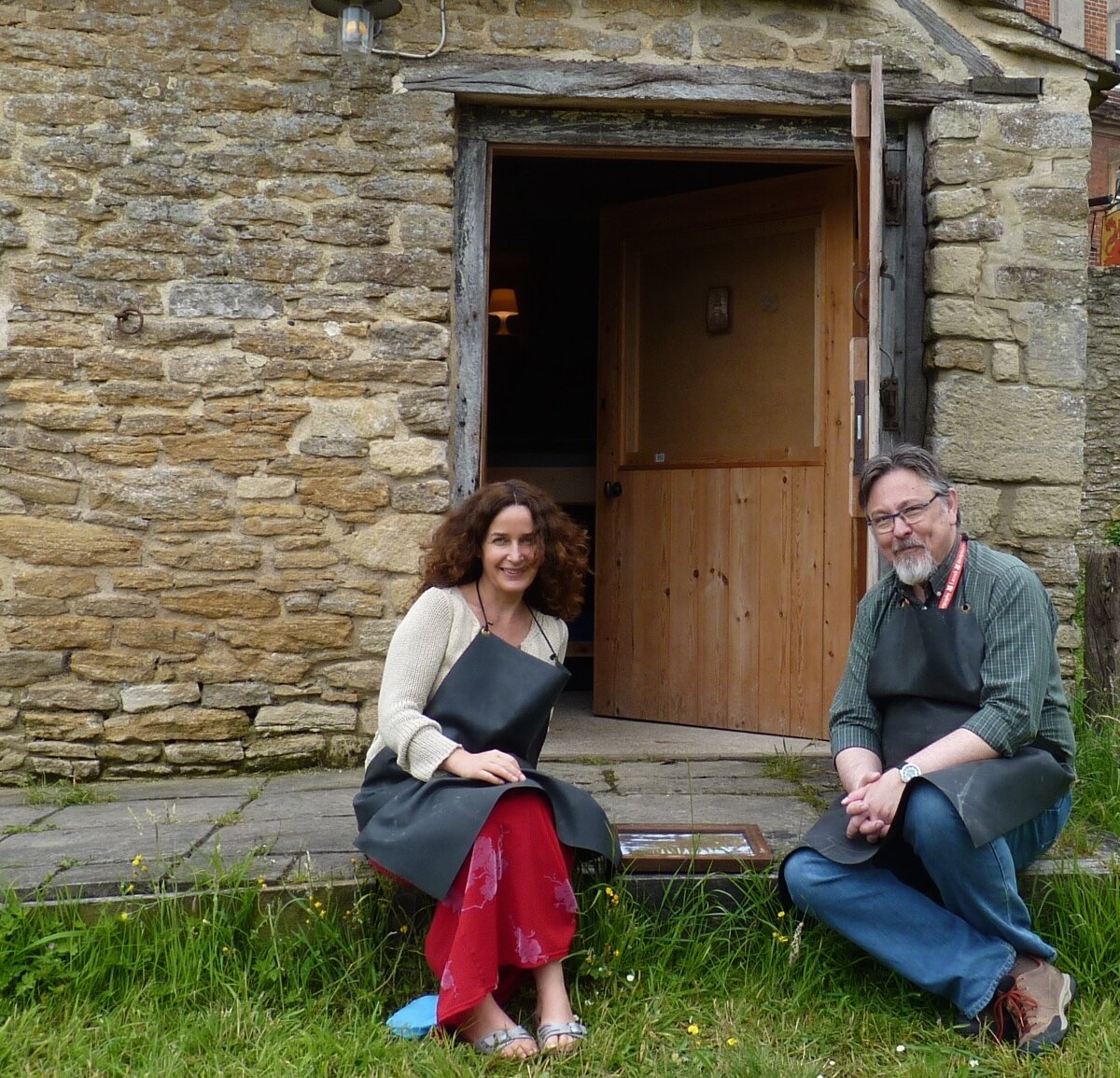A HISTORY OF TIME
Artwork Series 2017
‘A History of time’ The Program for Experimental Atmospheres and Climate (PÉAC,) Siobhan McDonald 2018
A History of Time is a series of works that narrates the changing state of the earth’s atmosphere. Using the early tools of photography, McDonald distills four eras of the earth's environment in the form of photogenic drawings that use ancient atmospheres to make visible the world before significant human impact on ecologies.
‘
In collaboration with Professor Jennifer McElwain, Siobhan used fossilized leaves to reconstruct the ancient atmospheric carbon dioxide record from 330 to 260 million years ago when large rainforests expanded throughout the tropics, leaving as their signature the world’s coal resources. In tandem with this scientific study, Siobhan set up a dark room in the atmospheric chambers of the Program for Experimental Atmospheres and Climate (PÉAC,) to record the silhouettes of our earliest plants. Using silver nitrate and light she created a series of ghostly imprints generated by a 400-million-year- old atmosphere – an atmosphere so deadly that two inhalations would suffice to kill a person. This constricting and resonant environment calls to mind the fatal impact our collective activities have had on our planet.
The project was inspired by the discoveries of William Henry Fox Talbot (1800-1877.) Born into an aristocratic English family at the turn of the nineteenth century, he lacked talent for drawing, but he was destined to invent the negative-positive photographic process. His frustration at being unable to draw gave him the idea of constructing a ‘drawing machine’. He noticed how the Italian sun burned his wife’s skin and realised that “sunlight works changes upon material substance”.
This simple observation suggested that he might be able to photosensitise paper with silver nitrate, a substance known to change properties when exposed to light. At first he merely transferred plant shapes directly onto photosensitive paper, but soon he began experimenting with putting the paper into a camera obscura.
The journal Nature Geoscience: published the project on their Front cover.
A History of time’ photogenic drawings that narrate the changing state of the Earth’s atmosphere. To make this work the light has travelled through atmospheres with varying levels of carbon dioxide, recreating the conditions of the Triassic, Cretaceous, and Devonian Periods and the Anthropocene Epoch respectively. The light has been blocked by fossil leaves foraged of our earliest plants on earth.
Photogenic drawings: silver nitrate, light and our earliest plants on antique paper.
‘Camera Obscura’ Siobhan set up a dark room in the atmospheric chambers of the Program for Experimental Atmospheres and Climate (PÉAC,)






















